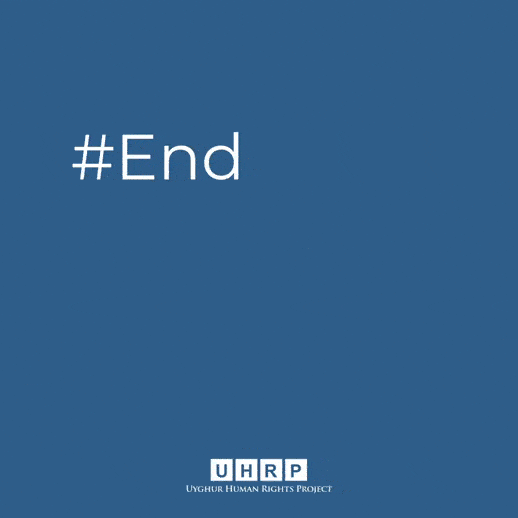End Uyghur Forced Labour
20% of the global cotton supply is tainted with Uyghur forced labour.
We are part of a coalition of civil society organisations and trade unions united to end state-sponsored forced labour and other egregious human rights abuses against people from the Uyghur Region in China, known to local people as East Turkistan.
Take action
Sign the petition:
Freedom United - Free Uyghurs from forced labour in China
What is happening?
Under the cover of world tragedy, China is busy continuing its regime of repression, exploitation and genocide. 1/5 cotton garments have been tainted by Uyghur forced labour. 84% of China's cotton exports come from the Uyghur region, where the Uyghur population and other Turkic and Muslim peoples are being forced to work.
Over a million Turkic Uyghurs are detained in concentration camps, prisons, and forced labour factories in China. Detainees are subject to military-style discipline, abused, tortured, and even killed. Survivors report being subjected to electrocution, waterboarding, repeated beatings, stress positions, and injections of unknown substances. This is the biggest detention of an ethno-religious group since World War II.
We are calling on brands and retailers to exit the Uyghur Region at every level of their supply chain, from cotton to finished products, to prevent the use of forced labour of Uyghurs and other groups in other facilities, and to end relationships with suppliers supporting the forced labour system. Brands and retailers must take each of these steps to fulfil their corporate responsibility obligations to respect human rights, as defined in international principles such as the UN Guiding Principles on Business and Human Rights.
Visit the End Uyghur Forced Labour website for more information.
Click here for more information about the brands who are complicit in Uyghur forced labour.
How do we know?
Right now, there is near certainty that any brand sourcing apparel, textiles, yarn or cotton from the Uyghur Region is profiting from human rights violations, including forced labour, both in the Uyghur Region and more broadly throughout China. We are asking brands to prove that they aren't.
Most of our information comes from Uyghur groups and The Xinjiang Data Project, which brings together rigorous, empirical research on the human rights situation for Uyghurs and other non-Han nationalities in the Xinjiang Uyghur Autonomous Region (XUAR) in western China.
The Xinjiang Data Project collects open-source data, including satellite imagery, Chinese government documents, official statistics, and a range of authoritative reports and academic studies. The Xinjiang Data Project documents the Chinese Communist Party’s ongoing program of human rights abuses and tech-enhanced authoritarianism in Xinjiang and explores its global implications.

